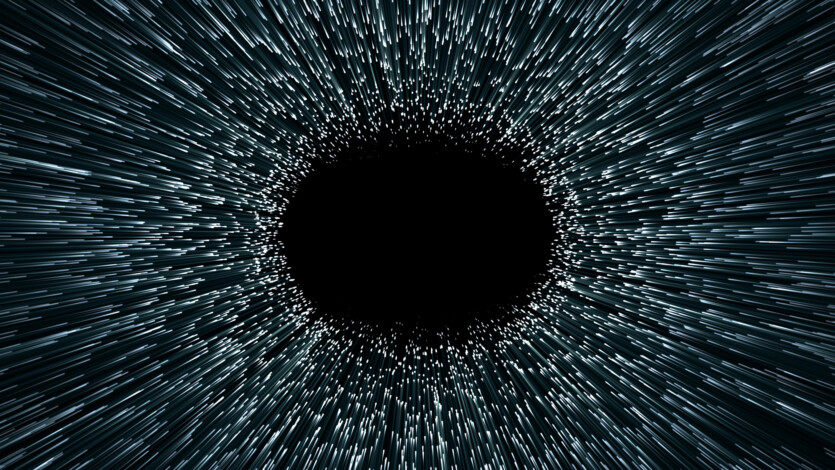
British physicists from the University of Portsmouth have come up with a new theory of the Universe, an alternative to the widespread Big Bang hypothesis.
According to a professor from the Institute of Cosmology and Gravity at the University of Portsmouth Enrique Gazzanaga, the calculations show that the Big Bang did not actually happen the beginning of the Universe, but rather the result of a gravitational collapse that formed a supermassive black hole with a subsequent rebound inside it.
According to Gazzanaga, he and other researchers called this idea a black hole universe. The standard modern model of cosmology is based on the Big Bang and cosmic inflation. It successfully explains the structure and the evolution of the Universe, while leaving a number of key fundamental questions unanswered.
Gattanaga notes that the Big Bang model is believed to originate from a singularity — a point with infinite density, where the laws of physics we are used to do not apply. The scientist emphasizes that this remains one of the key problems, as we do not understand how it all began.
To explain the large-scale structure of the Universe, physicists introduced a short phase of rapid expansion of the Universe in the early stages, called cosmic inflation, which was fueled by unknown field with strange properties. Later, a dark energy component was added to explain this strange phenomenon.
«In short, the standard model of cosmology works well — but only by introducing new components that we have never observed directly. Meanwhile, the basic questions remain: where did everything come from? Why did it all start this way? And why is the Universe so flat, smooth, and big?», — notes Gazzanaga.
According to him, the new model proposed by him and a team of scientists seeks to consider not the expansion of the Universe, but what happens when an extremely dense cluster of matter collapses under the influence of gravity. This process is familiar from the way supermassive stars collapse into black holes under certain conditions. However, the processes inside a black hole remain a mystery.
In 1965, the British physicist Roger Penrose proved that under fairly general conditions, gravitational collapse should lead to a singularity. This idea was well developed by another physicist, Stephen Hawking, and other scientists.
However Enrique Gazzanaga points out that the proposed singularity theorems are based on classical physics, which describes macroscopic objects. If we add here the effects of quantum mechanics, which should be the case at abnormally high densities, the result may be different.
The scientist emphasizes that in the new paper, he and a team of physicists prove that gravitational collapse does not necessarily lead to a singularity. Calculations show, that as we approach a potential singularity, the size of the Universe changes as a (hyperbolic) function of spacetime. This simple mathematical solution describes how a contracting cloud of matter can reach a high-density state and then rebound, emerging into a new expanding phase.
Gattanaga adds that it’s all about a rule called the quantum exclusion principle. This rule states that two fermions identical to each other cannot have the same quantum state, such as angular momentum or spin. According to him, this rule does not allow particles of collapsing matter to shrink infinitely. As a result, the collapse stops and reverses. A rebound is not only possible, it is inevitable under the right conditions.
Importantly, this rebound occurs exclusively within the framework of general relativity, which applies on large scales such as stars and galaxies, combined with the basic principles of quantum mechanics — no exotic fields, additional dimensions, or speculative physics are required.
How the Universe was born: scientists calculate the first moment after the Big Bang
Source: The Conversation; ScienceAlert

Spelling error report
The following text will be sent to our editors: